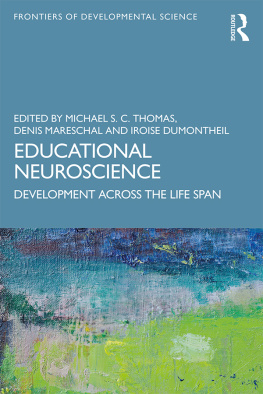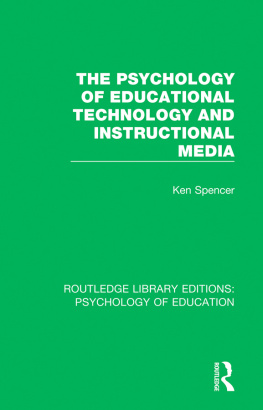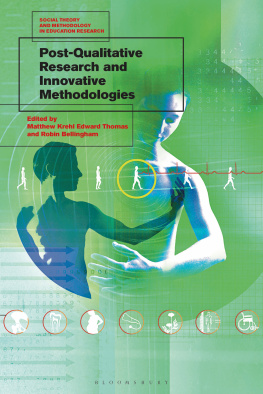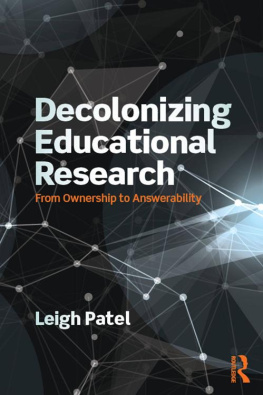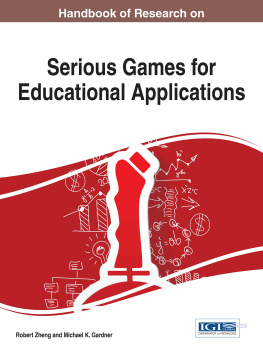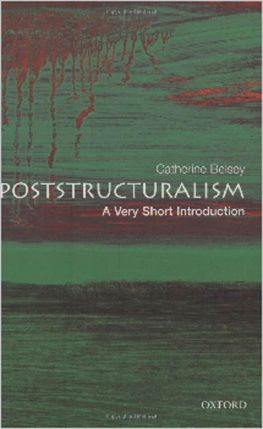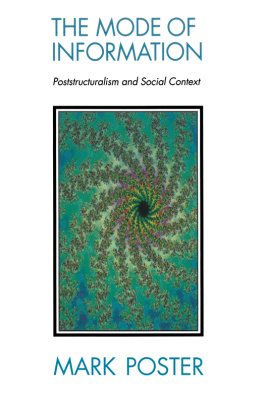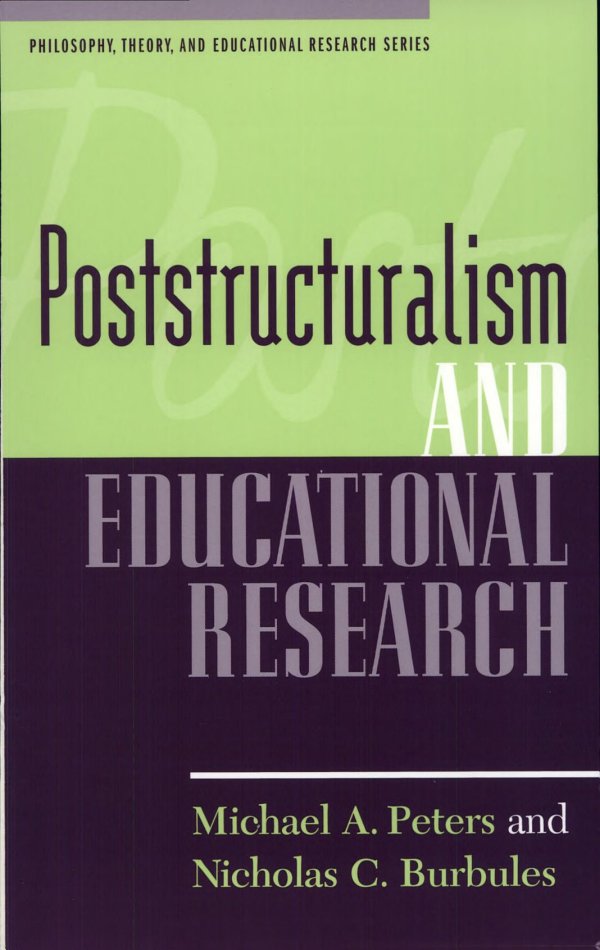Philosophy, Theory, and Educational Research Series Series Editor: Nicholas C. Burbules
Postpositivism and Educational Research
by D. C. Phillips and Nicholas C. Burbules
Poststructuralism and Educational Research
by Michael A. Peters and Nicholas C. Burbules
Pragmatism and Educational Research
by Gert J. J. Biesta and Nicholas C. Burbules
We dedicate this book to all our students, past and present, who have helped us to clarify the concepts and understand the approaches of those philosophers and thinkersin philosophy, the humanities, and education who have come to be called "poststructuralist."
Acknowledgments
We would like to thank Tina Besley and Joyce Atkinson for their helpful comments, support, and forbearance. Our thanks also to numerous friends and colleagues in the field of education who have provided insightful work (in the real sense of the term), much of which has figured in this book: James Marshall, Zelia Gregoriou, Henry Giroux, Cleo Cherryholmes, Tina Besley, Gert Biesta, Lynda Stone, Patti Lather, Stephen Ball, Lucy Holmes. Betsan Martin, Elizabeth Grierson, Janet Mansfield, Ho-Chia Chuen, Wang Chengbing, Elizabeth St. Pierre, Wanda Pillow, Walter Humes, Bob Davis, Paul Standish, Paul Smeyers, Richard Smith, and many others. Finally, our thanks also to Dean Birkenkamp and Alison Sullenberger at Rowman & Littlefield both for their editorial support, guidance, and patience. This book has been a long time coming. We hope that it will be a useful introduction to a complex skein of thought.
Series Preface
This book with Michael Peters is the third in a series appearing with Rowman & Littlefield Publishers: "Philosophy, Theory, and Educational Research." Contemporary educational research has been experiencing an explosion of new methodologies and approaches to inquiry. Many of these approaches have drawn from philosophical or theoretical positions that underlie their determinations of research methods, aims, and criteria of validity. Yet the substance of these philosophical or theoretical assumptions is not always made clear to readers, and so it is difficult for them to judge those assumptions for themselves.
This series is designed to explore some of the dominant philosophical and theoretical positions influencing educational research today, in a manner that does justice to the substance of these views and shows their relevance for research aims and practices. Each volume shows how a particular set of philosophical and theoretical positions affects the methods and aims of educational research and discusses specific examples of research that show these orientations at work. The emphasis is on lively, accessible, and theoretically sound explorations of the issues. These books are intended to be of interest not only to educational researchers, but to anyone in education wanting to understand what these various "isms" are about.
This series features a distinguished international group of scholars. It is important for the reader to know that the first author of each volume has had primary responsibility for conceptualizing and drafting the text. The series editor has played an active role in selecting the topics and organization for each volume, has interacted regularly with the first author as the text has been drafted, and has had a relatively free hand in revising the text and adding or suggesting new material. This is more than the role that editors normally play, and so second authorship seemed the appropriate appellation. But the predominant voice and point of view for each volume in the series is the first author's. It could not be otherwise, because no coauthor could equally advocate all the positions, many of them mutually inconsistent, argued for in these volumes.
Introduction
Poststructuralism, and its implications for the movement known as "postmodernism," is a major topic of discussion in the humanities and in social theory and research, including educational research. The works of the major authors in this tradition (Michel Foucault, Jean-Francois Lyotard, Helene Cixous, Jacques Derrida, Gilles Deleuze, and Donna Haraway, to name a few) are challenging and difficult. Yet more and more theorists and researchers in educational scholarship use this term to describe their work. What does "poststructuralism" mean for these authors, and what significance does it have for educational inquiry? This is the central question of the present book.
This book, exploring the impact of poststructuralism in language, intends to make the basic issues at stake clear, accessible, and relevant for a broad readership in education. We highlight the implications of a poststructuralist stance for the conception of the researcher and research subject in education, for the aims of educational research, and for forms of analysis and methods of investigation in educational research. We also describe the particular ways in which important and influential scholars (including Henry Giroux, Patti Lather, and Stephen Ball) have tried to incorporate the poststructuralist perspective into their investigations of educational issues. The emphasis throughout this book is on making these complex theoretical issues tangible, and making clear the moral and political commitments that drive this sometimes abstract intellectual movement.
While often stereotyped as inaccessible and aloof, poststructuralism actually offers many writers, among both the precursors to poststructuralism and the first generation of poststructuralist thinkers themselves, who addressed themselves directly to educational concerns. This supports, prima facie, the case for poststructuralism's direct relevance and significance to educational theory, policy, and practice. At one level, then, there is no need to try to imagine a case for the educational relevance and significance of something called "poststructuralism" by theorizing about potential applications of it. There is already a substantial body of work based in educational concerns where these writers developed their broader theoretical ideas. Let us give some brief indications of what we mean.
Education (as bildung, meaning "self-cultivation") played an important part in Friedrich Nietzsche and Martin Heidegger's philosophiestwo frequently cited precursors to the poststructuralist movementand both wrote explicitly on the nature of education and educational institutions. Nietzsche's essays, "Schopenhauer as Educator" and "On the Future of Our Educational Institutions," written in the 1870s while he was still a professor, provide an indication of the significance he granted to education and its role in the process of cultural renewal. Heidegger's controversial essay, "The Self-Assertion of the German University," in which he was prepared to sacrifice academic freedom in the name of national purpose, and the politically dubious statements he made when he was rector of Freiberg University during the Nazi period, should not obscure his wider contributions as one of the seminal critics of the university. His works on thinking and learning have not been (in our view) adequately considered in educational circles and the full import of his evaluation of humanism given in his famous "Letter on Humanism" has not been critically discussed by educational theorists, even although it centrally involves a model of education.


